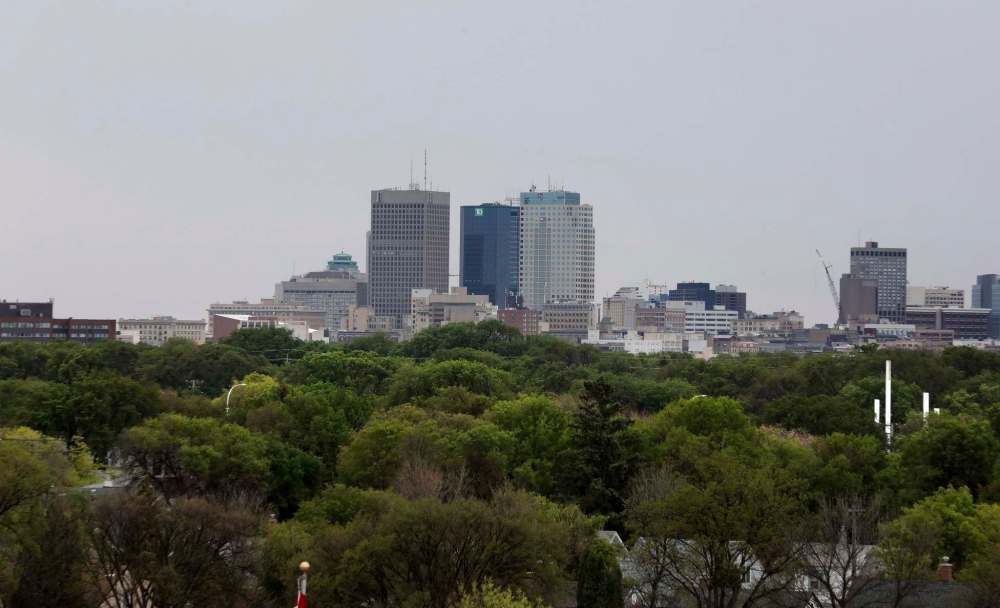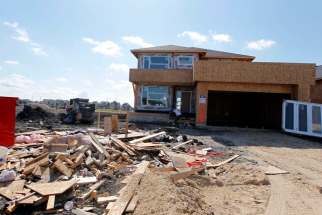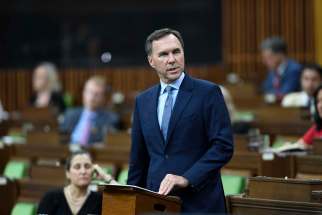Affordable housing remains outside city funding capability
Read this article for free:
or
Already have an account? Log in here »
To continue reading, please subscribe:
Monthly Digital Subscription
$0 for the first 4 weeks*
- Enjoy unlimited reading on winnipegfreepress.com
- Read the E-Edition, our digital replica newspaper
- Access News Break, our award-winning app
- Play interactive puzzles
*No charge for 4 weeks then price increases to the regular rate of $19.00 plus GST every four weeks. Offer available to new and qualified returning subscribers only. Cancel any time.
Monthly Digital Subscription
$4.75/week*
- Enjoy unlimited reading on winnipegfreepress.com
- Read the E-Edition, our digital replica newspaper
- Access News Break, our award-winning app
- Play interactive puzzles
*Billed as $19 plus GST every four weeks. Cancel any time.
To continue reading, please subscribe:
Add Free Press access to your Brandon Sun subscription for only an additional
$1 for the first 4 weeks*
*Your next subscription payment will increase by $1.00 and you will be charged $16.99 plus GST for four weeks. After four weeks, your payment will increase to $23.99 plus GST every four weeks.
Read unlimited articles for free today:
or
Already have an account? Log in here »
Hey there, time traveller!
This article was published 08/07/2020 (1983 days ago), so information in it may no longer be current.
City hall is planning to take a more active role in affordable housing in Winnipeg. What it hasn’t said is how much it plans to spend or where the money would come from.
A new report penned by the University of Winnipeg’s Institute of Urban Studies — titled “City of Winnipeg Comprehensive Housing Needs Assessment” — digs deep into the ongoing challenges of affordable housing, including the growing disparity between average family income and housing costs.
The report, commissioned by the city, warns the situation will get worse, especially for seniors, Indigenous people and immigrants, if governments fail to act.
Comprehensive Housing Needs Assessment
The relatively new National Housing Strategy, which Manitoba signed on to, is expected to provide some relief, including for Winnipeg’s estimated 1,500 homeless people. But it’s not enough, the report says: housing support from senior levels of government has declined over the years, it’s now up to city hall to step up.
“The city needs to take a more active and strategic role in housing — with the provision of adequate resources, enabling policies and tools, and new partnerships with the federal and provincial governments and community groups to address current and emerging housing needs in Winnipeg,” the report states.
Civic administration says it will use the report (which will be tabled Monday at council’s property and development, heritage and downtown development committee) to help shape a new, proposed affordable housing program.
It’s a laudable goal, but the larger question of how the city– with limited resources and a constant struggle to fund existing services — would potentially pay for it, is not addressed.
It’s a laudable goal, but the larger question of how the city — with limited resources and a constant struggle to fund existing services — would potentially pay for it, is not addressed.
This is an example of “mission creep.” Government sees a problem, or a need, and wants to help, even if it falls outside its jurisdiction or doesn’t have the tax base to fund it.
Affordable housing isn’t a new file for the city, but its role has always been a minor one. It provides modest support through the Winnipeg Housing Rehabilitation Corporation, which receives an annual city grant of $100,000.
The city also maintains a small reserve account (Housing Rehabilitation Investment Reserve) to help fund housing projects. It had a balance of $1.56 million at the end of 2019.
Housing is primarily a provincial responsibility. The province, which does have the tax base to address housing issues and homelessness, has partnered with the federal government over the years to fund various housing programs. However, constitutionally, it falls under provincial jurisdiction.

The report acknowledges senior levels of government would continue to do most of the “heavy lifting” when it comes to funding affordable housing programs. It says the city can act as a facilitator in areas such as zoning, infill housing and the fast-tracking of affordable housing proposals.
However, it also calls on the city to provide “adequate resources” to fund a new affordable housing program. It doesn’t provide cost estimates, but suggests city hall could consider supports such as start-up grants, annual operating grants, low-interest loans, tax increment financing, and land incentives to encourage entry-level ownership housing.
The report also recommends the establishment of a new “housing office” within planning, property and development. It doesn’t say at what cost or how many staff should be hired, but it does say it should go beyond the housing policy co-ordinator position the city currently funds.
In most cases, the city doesn’t have the resources to take on added responsibilities, especially ones that fall outside its jurisdiction.
“There is a need for ongoing research, program development, and policy integration with senior levels of government,” the report says.
There are a lot of needs, some of which fall under city jurisdiction, some of which don’t. In most cases, the city doesn’t have the resources to take on added responsibilities, especially ones that fall outside its jurisdiction.
As it is, city departments struggle to provide core municipal services, such as street maintenance and other infrastructure needs, snow clearing and greenspace upkeep.
A new proposed affordable housing program may start small, with a modest budget, but if history tells us anything, government bureaucracies — well intentioned as they may be — tend to grow in size over time.
Affordable housing initiatives should be left to the province and the federal government; they have the tax base to fund them. The City of Winnipeg does not.
tom.brodbeck@freepress.mb.ca

Tom has been covering Manitoba politics since the early 1990s and joined the Winnipeg Free Press news team in 2019.
Our newsroom depends on a growing audience of readers to power our journalism. If you are not a paid reader, please consider becoming a subscriber.
Our newsroom depends on its audience of readers to power our journalism. Thank you for your support.









